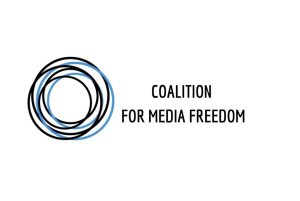The London Times said that the Premier League took money from the state-owned Telekom Serbia and turned a blind eye to a crackdown on the media by the Serbian authorities.
“Serbia’s state-backed broadcaster is using TV rights to the Premier League as part of a political campaign to crush independent media and silence opposition in the country, according to government critics,” the daily said and recalled the Telekom Serbia paid 100 million Euro a season for Premier League broadcast rights for the western Balkans, roughly ten times what the previous rights holder paid three years earlier. It quoted senior figures in Serbian politics and opposition media who alleged that the fee makes no economic sense and is politically motivated.
The United Group, a rival provider controlled by Southampton owner Dragan Solak, says that Telekom is using its Premier League access to force United Group, which offers Serbia’s only non-state controlled news output, out of the market —an illegal act under Serbian and EU laws on competition and media ownership. Campaigners say it is part of an attempt by the government to eliminate opposition voices. The allegations raise questions over how much diligence was done by the Premier League into a bid that was so clearly above the market value.
“Doesn’t the Premier League have a corporate principle about dealing with a dodgy guy who has a big pocket and no morals?” Dragica Pilipovic, a senior figure at United Group, told The Times. “The league’s only concern is that the next time around, there will be no competition in the bidding because Telekom will have destroyedthe competition. Next bid, Telekom will offer much, much less money. That’s their most realistic concern. Until then, the Premier League couldn’t care less.”
In October, Telekom announced that it would be handing its valuable English football rights, without charge, to a private broadcaster with close links to the ruling Serbian Progressive Party and the country’s autocratic president, Aleksandar Vucic. The broadcaster then hit United Group with an extortionate carriage fee. Critics say it was part of an attempt to undermine United Group and its output, using the Premier League as a political tool.“No broadcaster in the world paid as much as Telekom relative to the number of potential viewers in their market,” Pilipovic said. “There is no wayto recoup this investment. When you look at what they paid for those rights, it made no sense economically. But politically, it made perfect sense. The only sense that it made is to kill us.”
“It is a tool for attracting subscribers, but it is not for business or economic reasons,” said Rasa Nedeljkov of Crta, which works to counter threats to democracy and free media in Serbia. “It is purely political. It is for beating up United Group and their broadcasting of the only available independent media. “Telekom have been campaigning to force United Group out of the market for years, because they provide the only voices in our whole media spectrum that are different from the media-censored messages. At present, Telekom have about 50 per cent of the TV broadcastmarket. The way Telekom are using their Premier League rights is an extremely important part of that attack.”
President Vucic has long prized the political rewards offered by control of Serbia’s airwaves. As minister of information under the former president Slobodan Milosevic, he curated the information that reached the Serbian people during the Kosovo crisis in the 1990s, when Milosevic’s regime engaged in ethnic cleansing against the former Serb province’s Albanian population.A media watchdog calculated that between December 2020 and April 2021, Vucic racked up 50 hours of screen time in Serbia, 85 per cent of it positive. Serbia is ranked 93rd by the World Press Freedom Index, with the state’s ownership of Telekom and indirect control of other private media one of the principal causes of that low ranking.“According to our media laws, the state should have no ownership of any media,” Tamara Filipovic, of Serbia’s national union of journalists, said. “Instead, the state via Telekom is expanding through the media. It is against the law. That the rights to the Premier League were given for free by Telekom to a private broadcaster, it doesn’t make sense. Why would you share something you bought for such a huge amount with some commercial TV station? It’s a political manoeuvre to push out United Group’s channels.”
In May 2021, a leaked Telekom document referred to thecompany’s intention to end the business operations of United Group and to install the state provider as “the sole provider of content with domination of the market”. Any such move would defy competition law in the country.Vucic also stands accused of “political manoeuvring” by openly encouraging people to leave United Group’s provider. United Group and Crta claim this amounts to illegal inference.United Group also alleges that Telekom has been seeking to sabotage its operation, including setting up kiosks outside United Group’s high-street shops offering legal advice to customers on how to get out of their United Group subscriptions. Crta makes the claim that state pressure is being put on property developers to only allow Telekom subscriptions in their residential buildings. United Group also accuses the state of illegally targeting it with bogus labour inspections and punitive taxes.“Telekom’s attack on United Group can have a significant impact on Serbia’s hope of having a free media,” Filipovic said. “All other channels are extremely close to the ruling party. The media scene here is ruined. But it can get even worse.”
Both Telekom and the Premier League declined to comment.




